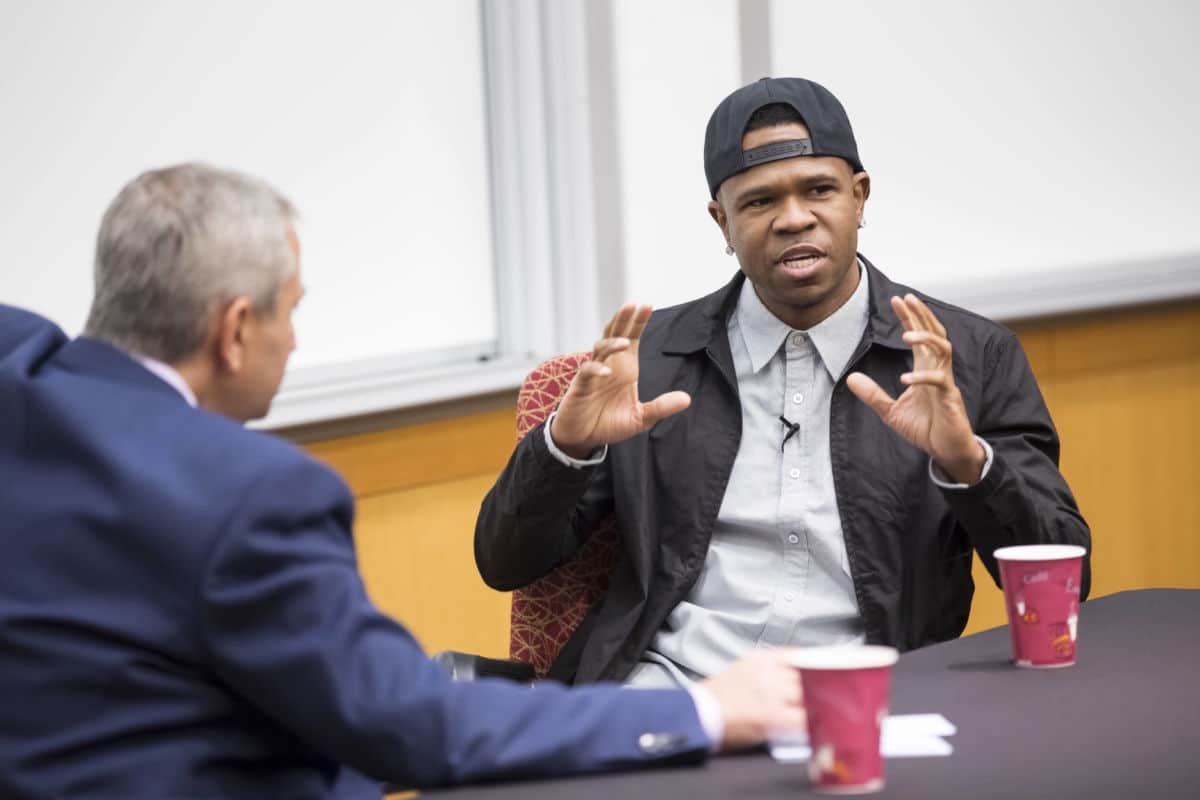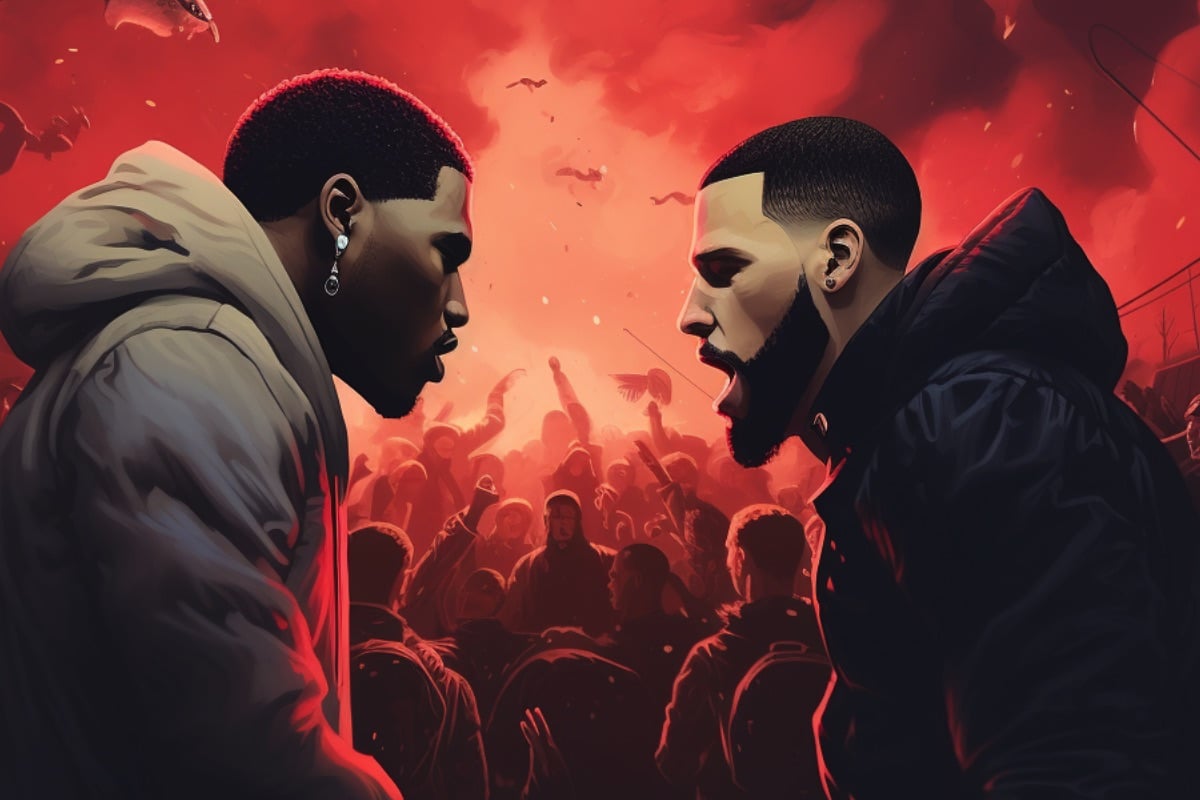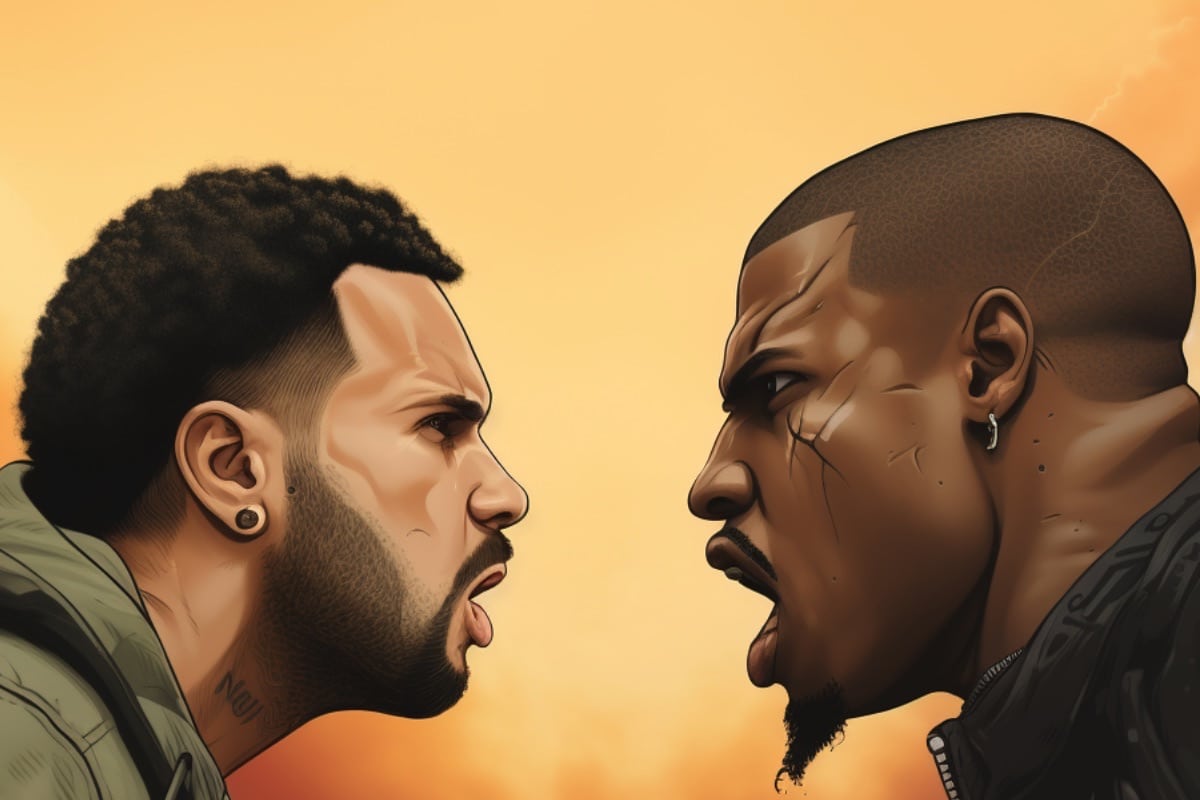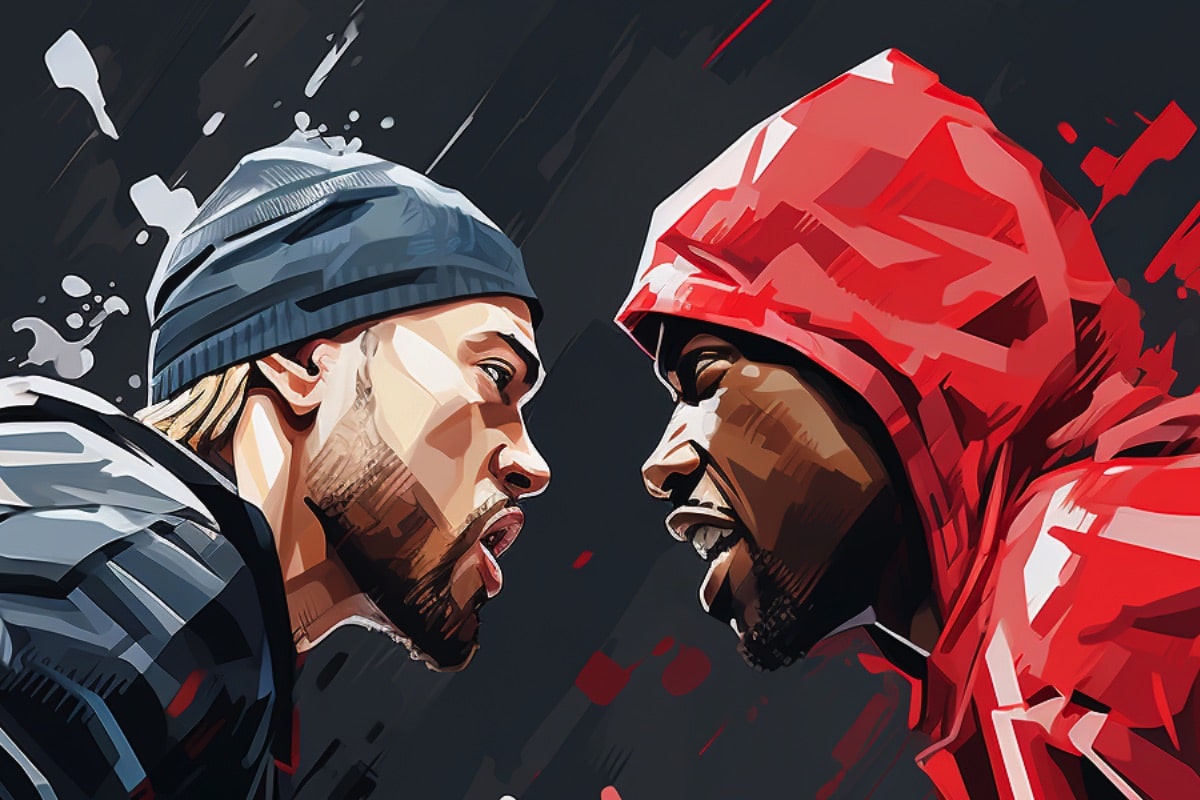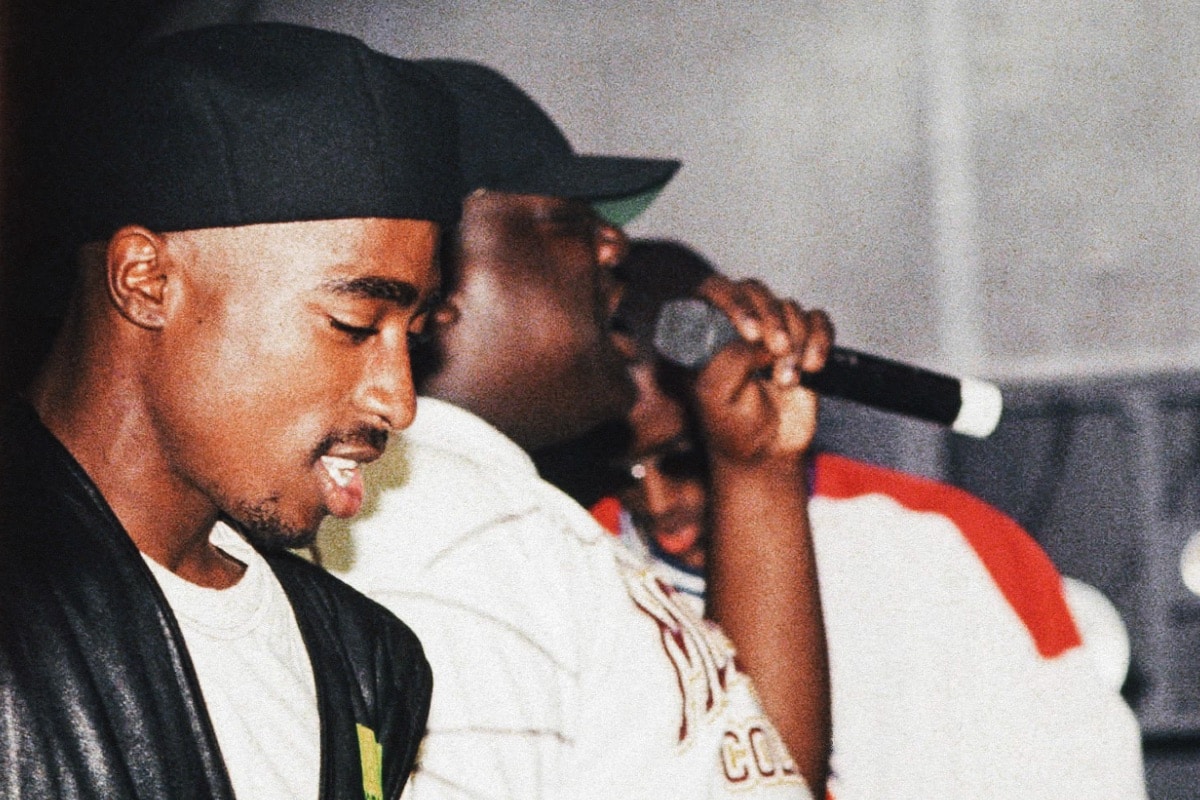In hip-hop history, certain years stand out for their groundbreaking contributions, and 2013 is undoubtedly one of them. This was a year that saw the emergence of new voices and the solidification of established ones, creating a seismic shift in the genre’s landscape. The year 2013 was marked by the release of several influential albums and singles that not only reshaped the sound and narrative of hip-hop whilst also replicating and influencing societal attitudes.
From the meteoric rise of artists like Kendrick Lamar and J. Cole to the genre-bending sounds of “Yeezus,” 2013 was a year of innovation, introspection, and impact. We’re dissecting the various facets that made 2013 a pivotal year in hip-hop, examining the new voices, groundbreaking albums, evolving production techniques, and the cultural and social influence that defined this era.
The Rise of New Voices
The year 2013 was a watershed year for hip-hop, marked by the rise of several artists who would come to define the genre’s new era. Kendrick Lamar, riding high off the success of his 2012 album “Good Kid, M.A.A.D City,” solidified his place in hip-hop with thought-provoking lyrics and a unique narrative style. J. Cole’s “Born Sinner” showcased introspective storytelling, while A$AP Rocky’s “Long. Live. A$AP” blended Harlem’s swagger with experimental sounds. These artists, among others, brought fresh perspectives and sounds to hip-hop, reshaping the genre’s landscape and setting new standards for artistic excellence.
Groundbreaking Albums and Singles
Kendrick Lamar’s “Good Kid, M.A.A.D City” was not just an album; it was a cinematic experience that narrated the complexities of urban life.
Kanye West’s “Yeezus” broke the mold with its experimental approach, fusing hip-hop with industrial and electronic music.
Additionally, hit singles like Drake’s “Started From the Bottom” and Macklemore & Ryan Lewis’s “Thrift Shop” dominated the charts and brought hip-hop to a wider audience.
These albums and singles reflected and influenced societal attitudes, from discussions on race and class to individual struggles and triumphs.
Evolution of Production and Sound
Hip-hop’s backdrop underwent a significant transformation, with producers and artists experimenting with new sounds and techniques. The influence of electronic music became more pronounced, with producers like Mike WiLL Made-It and DJ Mustard introducing new flavors to the genre, incorporating elements of trap and R&B into their beats. This evolution in production not only enriched the genre’s sound but also expanded its appeal, attracting fans from diverse musical backgrounds and influencing artists across genres.
Cultural Impact and Breaking Stereotypes
The rise of pop-rap blends that challenged the genre’s traditional themes emerged and became front and centre. A prime example of this was Macklemore & Ryan Lewis, whose work diverged from the conventional rap themes of sex, guns, and violence. Their hit single “Thrift Shop” was a departure from typical hip-hop subject matter, focusing on thriftiness and individuality rather than wealth and extravagance. This shift not only broadened hip-hop’s thematic range but also expanded its audience. Macklemore’s success illustrated how hip-hop could resonate with a wider, more diverse audience by embracing themes that were relatable to a broader spectrum of listeners. This period saw hip-hop artists exploring a variety of subjects, from introspection and personal struggles to social commentary, thereby reshaping the genre’s cultural impact and appeal.
Meanwhile, artists like Kendrick Lamar used their platforms to address themes of racial injustice and personal identity, resonating with listeners and sparking important cultural conversations. The global reach of hip-hop was more evident than ever, with artists from different countries drawing inspiration from the sounds and messages of 2013’s hip-hop, thus impacting international music scenes.
The Industry and Media Landscape
In 2013, the music industry and media began to recognize and adapt to the evolving landscape of hip-hop, particularly the rise of pop-rap and its appeal to a wider audience, gaining significant attention not only from traditional hip-hop audiences but also from mainstream pop fans.
Money talks, and the industry embracing this blend of pop and rap signified a recognition of hip-hop’s expanding influence. The growing popularity of music streaming services and social media platforms played a pivotal role in facilitating this crossover. Platforms like SoundCloud and Twitter allowed for direct engagement and feedback, influencing trends and careers. The role of music critics and media also evolved, with blogs and online publications becoming key players in hip-hop’s narrative.
These platforms provided a space for diverse musical styles to coexist and thrive, allowing artists to reach beyond their usual fanbases. The success of pop-rap blends in 2013 demonstrated the industry’s willingness to diversify hip-hop’s appeal and acknowledge its potential to resonate with a global audience.
The legacy of 2013 in hip-hop is evident in the continued evolution of the genre, as the artists and trends that emerged continue to influence music today. Reflecting on this pivotal year, it’s clear that 2013 was not just another year in hip-hop history; it was a year that redefined and reshaped the genre in profound ways, setting the stage for the future of hip-hop.
However, long term fans and purists of hip-hop may also recognize this period as a pivotal moment where the genre started to take a turn for the worse, with popularity, and th emoney that comes with it, overwhelming an industry and lowering the underlying quality of the music.
Now, ten years later, several artists are voicing concerns that the genre has taken a very bad turn in recent years … so much so that a legend of the game, Andre 3000, has turned his back on rap and produced an instrumental jazz album.
So, where to next for hip-hop? Are we seeing a point where rap music has peaked in the pop scene and will finally fall back to it’s traditional roots? Only time will tell.
